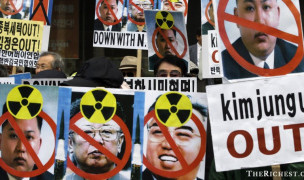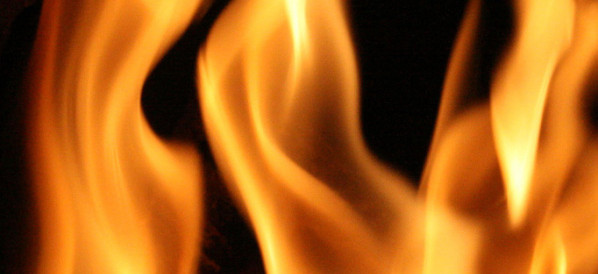 5 Terms
5 TermsHome > Terms > English (EN) > PBS/Public Broadcasting System
PBS/Public Broadcasting System
In November 1967 the Public Broadcasting Act was signed into law by President Lyndon Johnson. This Act established the Corporation for Public Broadcasting (CPB) as an independent, non-governmental body formed to serve as the umbrella organization for public broadcasting in the United States. Over thirty years, PBS has produced hits and changed broadcasting, while being charged with both elitism and middlebrow, safe tastes.
After the Second World War, the FCC had ensured that a certain number of stations would be reserved for educational broadcasting, but securing the money to run these was difficult. Initially, stations were usually affiliated to universities and other large institutions. In the 1960s, 125 educational television stations reached 6 million viewers.
Notable stations included WQED in San Francisco, CA, which had begun in 1950; in 1955 it came up with an innovative form of fundraising—the on-air auction. This became a mainstay of both its programming and fundraising schedules and is used by other local public stations that remain reliant upon donations, especially after recent government cutbacks.
With the 1967 Act, a place on the broadcast spectrum for educational non-commercial television was secured. Within the decade, the number of public stations doubled and 30 million homes would enjoy access to public broadcasting. Today 99 percent of Americans have access to public broadcasting. The CPB was authorized to develop educational broadcasting and finance facilities to link the independent public television stations, but was restricted from owning stations, systems, or networks. The CPB established the Public Broadcasting Service (PBS) in 1969 to manage the interconnection of independent public and educational broadcasting facilities. PBS is owned by its member stations; each member station is accountable to its local community Programming originates from a local station and is shared by member stations. For example, Electric Company, the award-winning children’s show, was produced by the Boston station WGBH, but shown nationwide. The related production company Children Television Workshop, produced Sesame Street for New York. Each station within the umbrella is free to produce and buy its own programming, but increasingly stations’ programming mimics that of other stations, so that PBS resembles a commercial network.
Commercial networks never registered any protest to PBS; they quickly realized that PBS was appealing to a different segment of the market. PBS showed dynamic fare such as Eyes on the Prize, a groundbreaking documentary on the Civil Rights movement, and An American Family, an innovative show that followed the life of a California middleclass white family. It also became the venue for many Ken Burns documentaries—from baseball to radio. Shows like Nature and Nova made it popular with educators just as Sesame Street and Mr Roger’s Neighborhood made it a must-see with kids. English shows were imported via the programs Mystery and Masterpiece Theatre, while opera and ballets were telecast live as ways to appeal to the high-brow population. At the same time, some more daring programming was also produced, such as Alive from Off-Center, which showed work from avant-garde artists and performers. Both, however, redefined public as elite rather than popular (or even local). Although commercial advertisements are not broadcast on PBS, stations and programs are allowed to announce the corporations and foundations who have underwritten particular shows. This has increased as government cutbacks (spurred on by the right wing) have eroded the financial structure. Corporations are able to portray themselves through PBS as interested in the arts, concerned about the environment and involved in the technological future without having to resort to anything as gauche as a traditional advertisement. Some fear that this corporate patronage has hindered the stations’ ability to develop programming free from censorship and to produce innovative shows as the system did in its first few years.
- Part of Speech: noun
- Synonym(s):
- Blossary:
- Industry/Domain: Culture
- Category: American culture
- Company: Routledge
- Product:
- Acronym-Abbreviation:
Other Languages:
Member comments
Terms in the News
Billy Morgan
Sports; Snowboarding
The British snowboarder Billy Morgan has landed the sport’s first ever 1800 quadruple cork. The rider, who represented Great Britain in the 2014 Winter Olympics in Sochi, was in Livigno, Italy, when he achieved the man-oeuvre. It involves flipping four times, while body also spins with five complete rotations on a sideways or downward-facing axis. The trick ...
Marzieh Afkham
Broadcasting & receiving; News
Marzieh Afkham, who is the country’s first foreign ministry spokeswoman, will head a mission in east Asia, the state news agency reported. It is not clear to which country she will be posted as her appointment has yet to be announced officially. Afkham will only be the second female ambassador Iran has had. Under the last shah’s rule, Mehrangiz Dolatshahi, a ...
Weekly Packet
Language; Online services; Slang; Internet
Weekly Packet or "Paquete Semanal" as it is known in Cuba is a term used by Cubans to describe the information that is gathered from the internet outside of Cuba and saved onto hard drives to be transported into Cuba itself. Weekly Packets are then sold to Cuban's without internet access, allowing them to obtain information just days - and sometimes hours - after it ...
Asian Infrastructure Investment Bank (AIIB)
Banking; Investment banking
The Asian Infrastructure Investment Bank (AIIB) is an international financial institution established to address the need in Asia for infrastructure development. According to the Asian Development Bank, Asia needs $800 billion each year for roads, ports, power plants or other infrastructure projects before 2020. Originally proposed by China in 2013, a signing ...
Spartan
Online services; Internet
Spartan is the codename given to the new Microsoft Windows 10 browser that will replace Microsoft Windows Internet Explorer. The new browser will be built from the ground up and disregard any code from the IE platform. It has a new rendering engine that is built to be compatible with how the web is written today. The name Spartan is named after the ...
Featured Terms
self-immolation
Self-immolation is the act of setting oneself on fire. This usually happens as a form of protest. Cases of self-immolation are usually carried out by ...
Contributor
Featured blossaries
Marouane937
0
Terms
58
Blossaries
3
Followers
5 of the World’s Most Corrupt Politicians
 5 Terms
5 Terms
dnatalia
0
Terms
60
Blossaries
2
Followers
Herbs and Spices in Indonesian Cuisine
 10 Terms
10 Terms
Browers Terms By Category
- Alcohol & Hydroxybenzene & Ether(29)
- Pigments(13)
- Organic acids(4)
- Intermediates(1)
Organic chemicals(47) Terms
- Automobile(10466)
- Motorcycles(899)
- Automotive paint(373)
- Tires(268)
- Vehicle equipment(180)
- Auto parts(166)
Automotive(12576) Terms
- Characters(952)
- Fighting games(83)
- Shmups(77)
- General gaming(72)
- MMO(70)
- Rhythm games(62)
Video games(1405) Terms
- Yachting(31)
- Ship parts(4)
- Boat rentals(2)
- General sailing(1)
Sailing(38) Terms
- Cables & wires(2)
- Fiber optic equipment(1)


